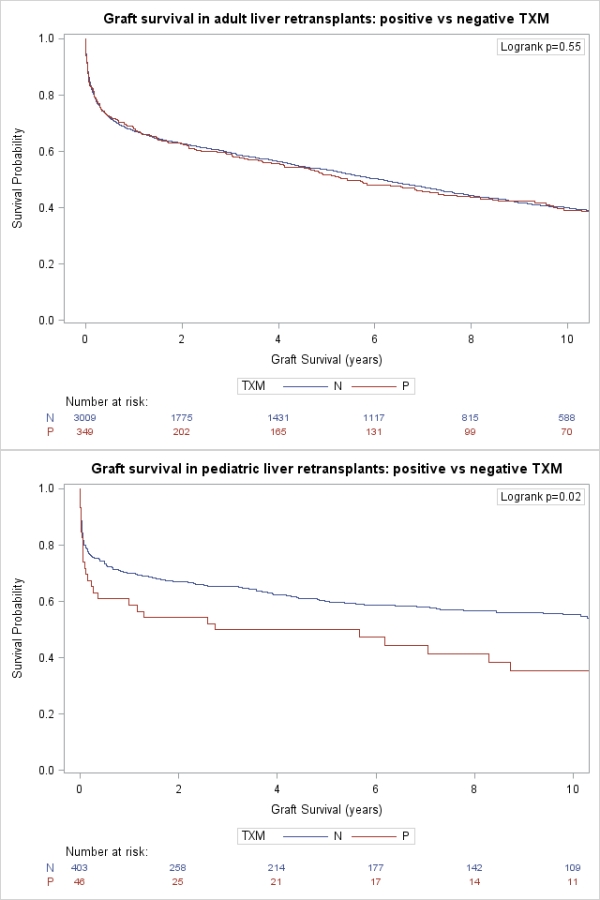Clinical Implications of Positive Crossmatch in Liver Retransplants
Surgery, University of Cincinnati, Cincinnati, OH.
Meeting: 2018 American Transplant Congress
Abstract number: 239
Keywords: Flowcytometry crossmatching, Liver transplantation
Session Information
Session Name: Concurrent Session: Liver Retransplantation and Other Complications
Session Type: Concurrent Session
Date: Monday, June 4, 2018
Session Time: 2:30pm-4:00pm
 Presentation Time: 2:30pm-2:42pm
Presentation Time: 2:30pm-2:42pm
Location: Room 6A
Background
Liver transplant has been performed successfully regardless of a positive crossmatch. However, the clinical implications of a positive crossmatch in liver retransplants have not been evaluated in large studies. The aim of this study is to assess if there are differences in patient and graft survival after liver retransplants with positive crossmatch compared to negative crossmatch.
Methods
All liver retransplants performed between 1994 and 2014 were reviewed from the Scientific Registry of Transplant Recipients. Liver retransplants with reported crossmatch were included whether or not the results of the crossmatch were available before transplant.
Results
T-cell crossmatch (TXM) was performed in 3429 adult liver retransplants and was positive in 349 patients (10.2%); no difference was observed in graft and patient survival between positive and negative TXM. B-cell crossmatch (BXM) was recorded in 2285 adult retransplants and was positive in 498 (21.8%) with no difference in graft and patient survival between positive and negative BXM. TXM was performed in 466 pediatric liver retransplants and was positive in 46 (9.9%). In pediatric retransplants, 1- and 5-year graft survival was lower in patients with positive TXM (58.7% and 50%) compared to negative TXM (69.9% and 60.1%,p=0.02). Patient survival at 1- and 5-years was lower in case of positive TXM (68.8% and 58.6%) compared to negative TXM (78.3% and 70.6%,p=0.01). BXM was performed in 340 pediatric retransplants and was positive in 83 (24.4%); no survival difference was noted between positive and negative BXM. Multivariable Cox regression showed that in pediatric retransplants, a positive TXM was associated with worse graft survival (hazard ratio,HR:1.62,95%CI:1.07-2.46,p=0.02) and worse patient survival (HR:1.90,95%CI:1.18-3.08,p<0.01).
Conclusion
A positive TXM was associated with worse graft and patient survival in pediatric liver retransplants while no survival difference was noted in adults between positive and negative TXM. Although a crossmatch is likely not needed in most adult liver retransplants, it may assist in donor selection in the pediatric population.
CITATION INFORMATION: Paterno F., Tremblay S., Wima K., Cuffy M., Diwan T., Anwar N., Woodle E., Shah S. Clinical Implications of Positive Crossmatch in Liver Retransplants Am J Transplant. 2017;17 (suppl 3).
To cite this abstract in AMA style:
Paterno F, Tremblay S, Wima K, Cuffy M, Diwan T, Anwar N, Woodle E, Shah S. Clinical Implications of Positive Crossmatch in Liver Retransplants [abstract]. https://atcmeetingabstracts.com/abstract/clinical-implications-of-positive-crossmatch-in-liver-retransplants/. Accessed February 26, 2026.« Back to 2018 American Transplant Congress
